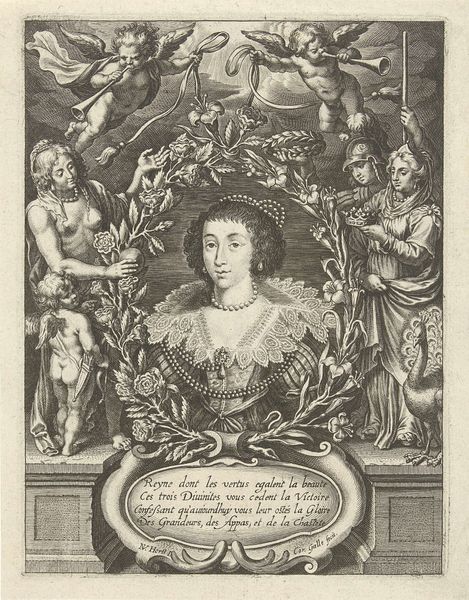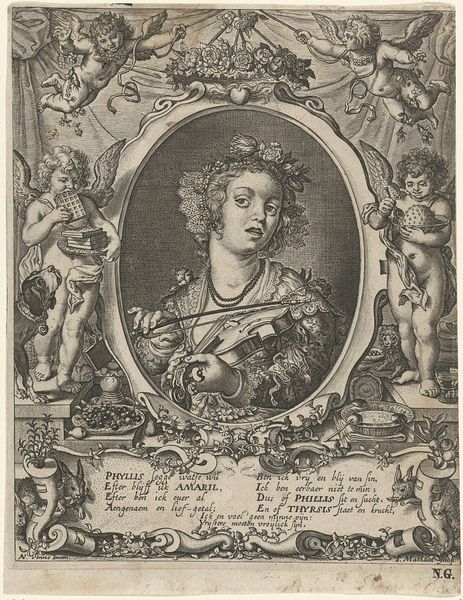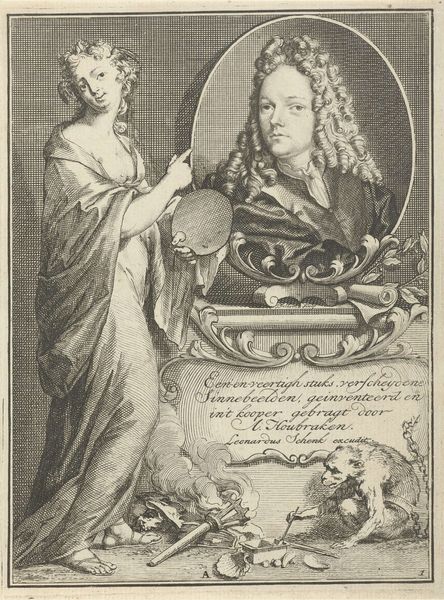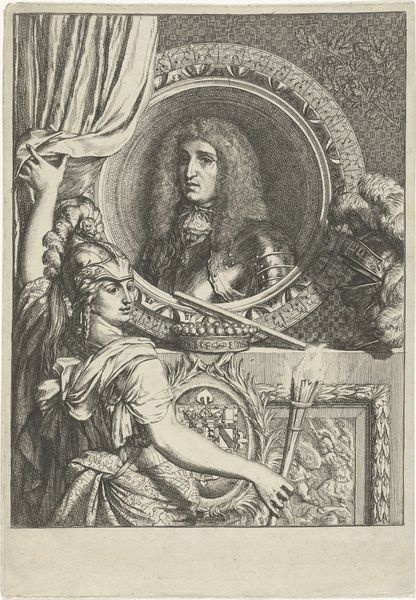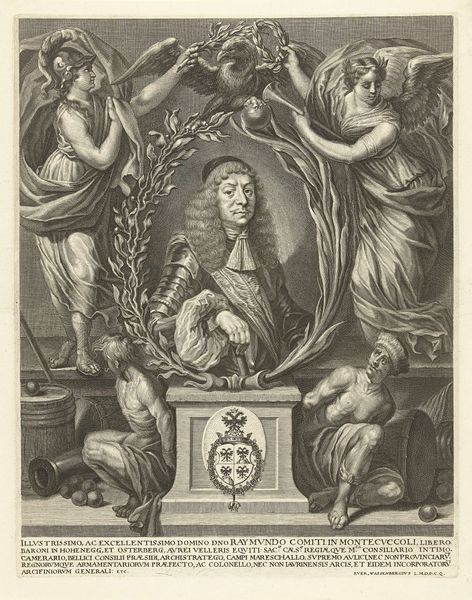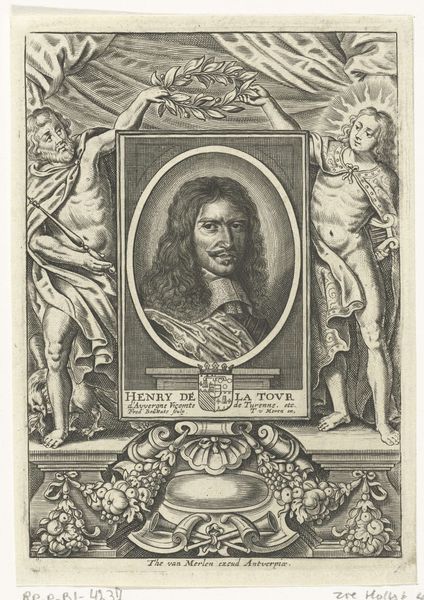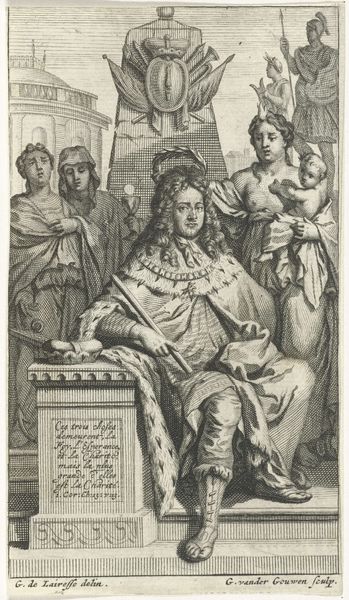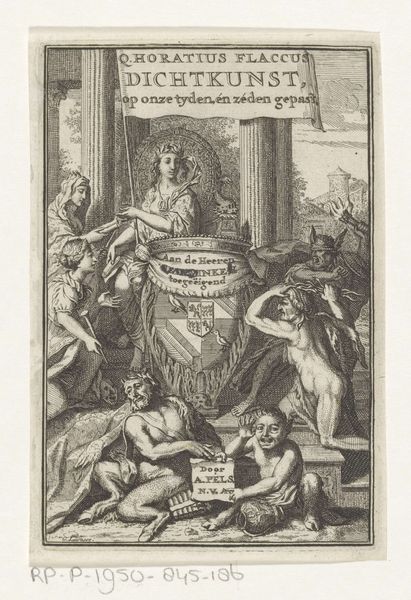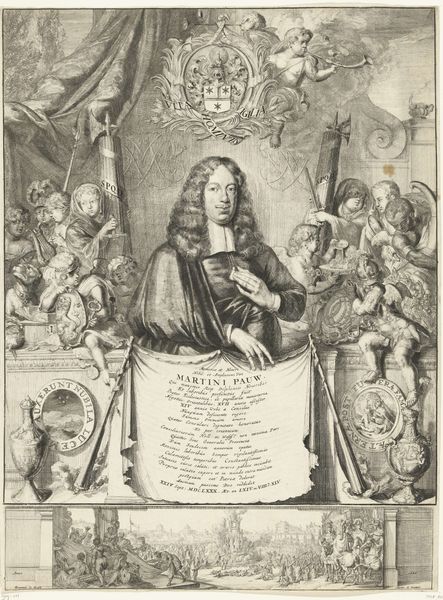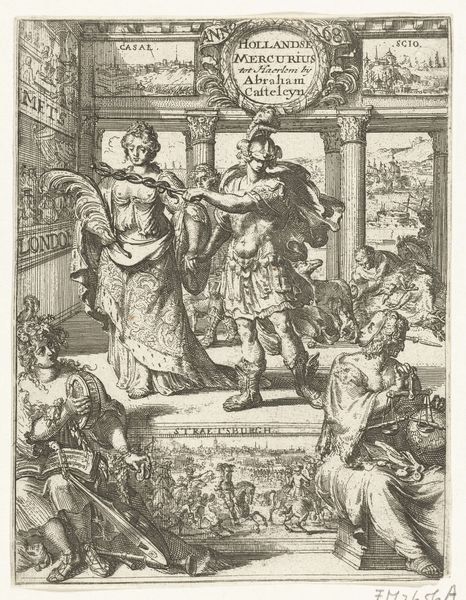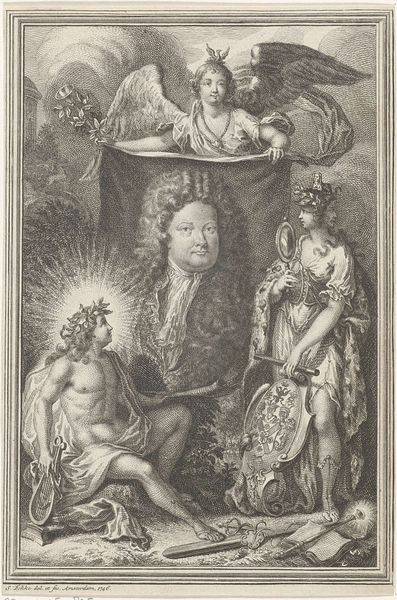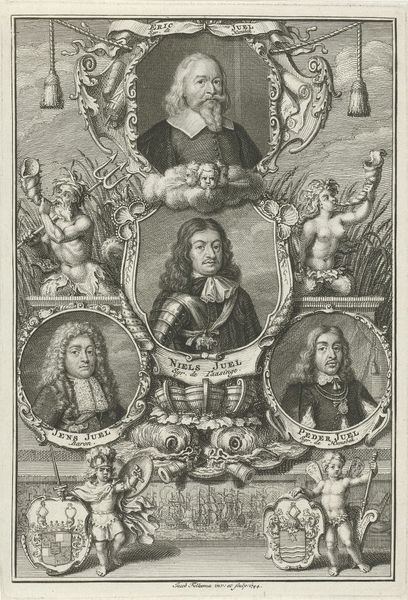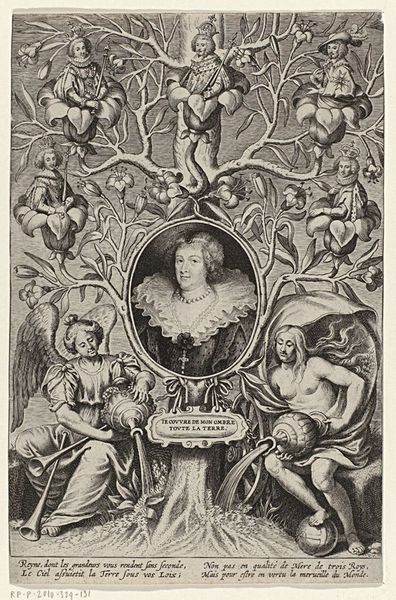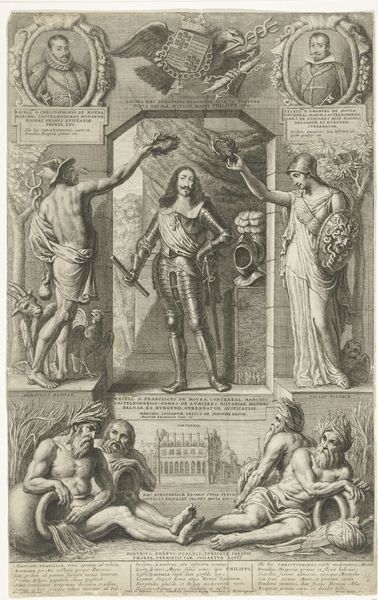
print, engraving
#
allegory
#
baroque
# print
#
history-painting
#
engraving
Dimensions: height 168 mm, width 135 mm
Copyright: Rijks Museum: Open Domain
This is Pieter Sluyter's title page for the "Europische Mercurius," created in 1705. This Dutch periodical, translating roughly to the "European Mercury," was a politically engaged magazine aimed at literate, upper-class men in the Netherlands. The image is packed with allegorical figures: a portrait of William III of Orange sits within a laurel wreath. He is flanked by female figures who represent virtues, while putti struggle to hold up the central image. The masculine, muscular figures at the base represent rivers. Sluyter cleverly uses classical references to frame contemporary politics. The "Europische Mercurius" sought to shape public opinion and legitimize the ruling class. Through art, these periodicals presented a vision of Dutch identity intertwined with power, trade, and a specific social order. Sluyter’s image offers a glimpse into the visual strategies employed to disseminate information and reinforce cultural values in the early 18th century. What does it mean to have access to, or be excluded from, the shaping of public opinion?
Comments
No comments
Be the first to comment and join the conversation on the ultimate creative platform.
